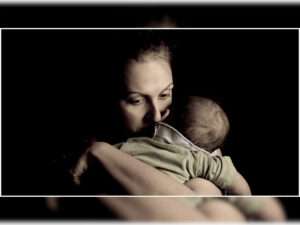Introduction
Post partum depression causes various emotional and psychological challenges for new mothers, making the postpartum period overwhelming. Unlike temporary “baby blues,” postpartum depression (PPD) is a serious mental health condition that requires attention and support. Identifying the post partum depression causes can help in early intervention and recovery. In this blog, we will explore five major factors that contribute to postpartum depression and how they impact new mothers.

If you need professional support, consulting the best psychiatrist in Delhi can provide valuable insights and personalized strategies for Depression. Consider Visiting:
1. Hormonal Changes as a Post Partum Depression Cause
One of the most common post partum depression causes is the sudden shift in hormone levels after childbirth. During pregnancy, estrogen and progesterone levels rise significantly, but within 24 hours of giving birth, these hormone levels drop drastically.
This rapid hormonal decline can affect mood regulation, leading to increased anxiety, sadness, and emotional instability. Additionally, changes in thyroid function post-delivery can contribute to fatigue and depressive symptoms, worsening postpartum mental health.
2. Emotional and Physical Stress Contributing to Post Partum Depression Causes
Childbirth is physically exhausting, and the recovery process varies for each mother. Sleep deprivation, constant fatigue, and pain from delivery can make it difficult for new mothers to cope with their emotions, increasing the risk of depression.
The emotional adjustment to motherhood is another post partum depression cause, as many women experience overwhelming anxiety about parenting responsibilities. The fear of not being a “good mother” combined with physical exhaustion can lead to persistent stress, one of the primary post partum depression causes.
3. Lack of Social and Emotional Support as a Post Partum Depression Cause
A strong support system is essential for a new mother’s emotional well-being. However, when there is a lack of emotional reassurance or practical help, the risk of developing postpartum depression increases.
New mothers who feel isolated or unsupported by their families, partners, or society may struggle with feelings of loneliness and helplessness. This lack of support system is often overlooked but remains a crucial post partum depression cause that affects many women worldwide.

4. Previous Mental Health Conditions and Their Link to Post Partum Depression Causes
Women with a history of mental health disorders, such as depression or anxiety, are more vulnerable to post partum depression causes. If a mother has previously experienced major depressive episodes, she is at a higher risk of developing postpartum depression.
Genetic predisposition also plays a role. If postpartum depression runs in the family, the likelihood of experiencing it increases. It is essential for expecting mothers with pre-existing mental health conditions to seek professional support during and after pregnancy.
5. Pregnancy and Childbirth Complications as a Post Partum Depression Cause
Difficult pregnancies or labor complications significantly contribute to post partum depression causes. Some factors that can trigger postpartum depression include:
- Traumatic childbirth experiences
- Emergency C-section deliveries
- Premature birth
- Health complications for the baby
These experiences can lead to emotional distress, self-blame, and guilt, making it difficult for mothers to recover emotionally. Understanding how these complications contribute to postpartum depression can help mothers and healthcare providers implement effective coping strategies.
How to Seek Help for Post Partum Depression Causes
If you or someone you know is experiencing postpartum depression symptoms, seeking professional help is crucial. Therapy, emotional support, and self-care strategies can aid in recovery.
For expert resources on postpartum depression, visit:

Conclusion
Understanding the post partum depression causes is essential for early diagnosis and treatment. Hormonal changes, emotional stress, lack of support, past mental health issues, and childbirth complications are some of the leading factors contributing to postpartum depression.
By recognizing these post partum depression causes, new mothers and their families can take proactive steps toward emotional well-being, support, and recovery. Raising awareness about postpartum depression helps ensure that every mother receives the care she deserves.